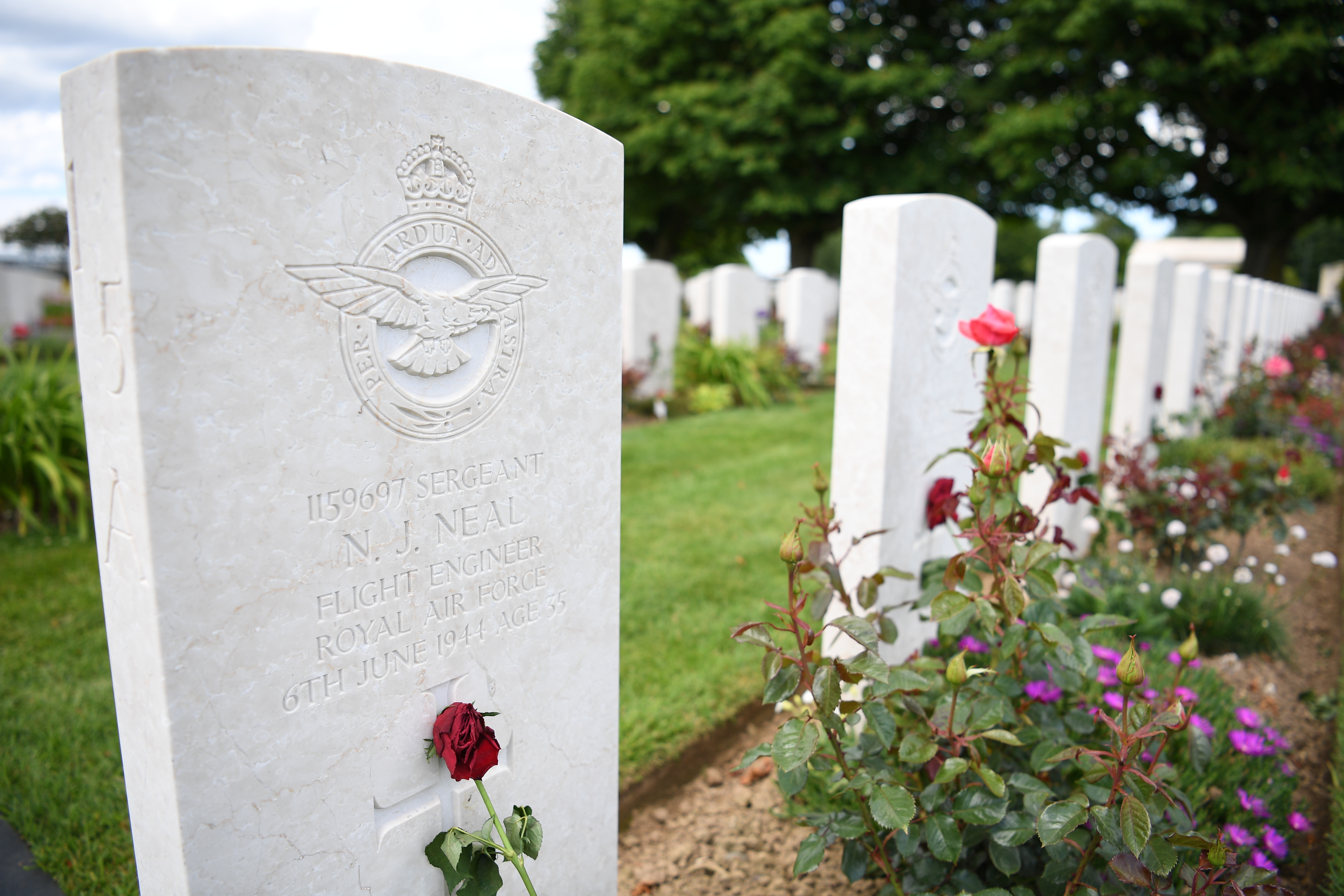I’ve been in Bayeux this week. Not to admire the tapestry but to plant a cross on the grave of Private Thomas Bintley, one of the 4,144 British and Commonwealth servicemen who lie in the immaculate cemetery on the outskirts of the town.
Bintley parachuted into Normandy on the night of 17 August, one of a small team of SAS troops, and three days later he was killed in a skirmish with German troops. A local man was made to dig the Englishman’s grave and while he did so, he later testified, the Waffen SS ‘danced on the corpse of Bintley’.
Having found Bintley’s grave I walked among the forest of white headstones, a rare British pilgrim in a summer unusually quiet for battlefield tourists. A couple of inscriptions caught my eye, such as the one on the headstone of 20-year-old Lt. Peter Manton, MC, of the Royal Armoured Corps:
‘A Splendid Comrade who died that England might live.’
When that generation is gone, I foresee a great change in how we remember our war dead
Not far away lay lance sergeant Harry Cotton, killed on D-Day while serving with the Devonshire Regiment. His inscription was from his grieving mother:
‘He died for Britain and the honour of his race.’
In the three decades I’ve been visiting Commonwealth war graves cemeteries in Europe, for the first time this year I experienced an emotion other than sadness. It was a bitter resentment against those who this summer have broken cover and revealed how they truly feel about their country. Boris Johnson believes it’s a ‘cringing embarrassment’ of being British that makes them want to do away with ‘Rule Britannia’ and Winston’s statue; you’re too kind, Prime Minister, and wrong.
These people are driven by a deep hatred of Britain and that includes the men and women who gave their lives fighting tyranny in the 20th century.
From the hooligan attempting to set fire to the union flag on the Cenotaph to a newspaper columnist describing the ‘Britishness’ of VE Day as ‘nauseating’ to an Oscar-winning actor explaining that there was little difference in morality between Britain and Japan in the war. This disparaging of the wartime generation is peculiar to the British left; even their American cousins retain a modicum of respect for the men and women who helped defeat Hitler and Hirohito.
I thought of these people as I knelt at the graveside of Thomas Bintley, and of others like them: the woman who scolded Laurence Fox for his ‘white privilege’; Liz Jolly, the British Library’s chief librarian who believes ‘racism is a creation of white people’, and the historian sneeringly instructing white BBC viewers to educate themselves by reading ‘some books so you are aware of the histories of white people and race.’
I wonder how many books they’ve read about the war and how many cemeteries they’ve visited. The same goes for the Guardian columnist, Zoe Williams, who found VE Day so distasteful this year. She also doesn’t think much of Captain Tom Moore, who raised millions for the NHS during the lockdown thanks to those obsolescent British virtues of stoicism and self-discipline. ‘Captain Tom Moore is the human shield of this way of thinking,’ she wrote, referring to VE Day commemorations. ‘That vision of the past is acutely unhelpful.’
When people describe something or someone as ‘unhelpful’, what they mean is it is a nuisance, an obstacle, one that must be removed if their cultural revolution is to succeed.
Williams was right about one thing. Britons who revere our war dead do have a human shield, but it’s not Captain Tom; it’s the Queen. As long as she is alive the nation will continue to honour its war dead, but I worry about the years ahead. We have a Conservative government indifferent to the desecration of the Cenotaph, a police force incapable (or unwilling) of protecting our statues and a military becoming more woke by the month.
When the Queen, Prince Philip, Captain Tom and the rest of that generation are gone, I foresee a great change in how we remember our war dead. Two years ago, I explained in The Spectator how the left had lost little time in culturally appropriating the first world war after that generation died out.
The same thing will happen to the second world war; in fact, it’s happening before our eyes: the apologists for Japan’s myriad atrocities, the RAF labelled as ‘terrorists’ and Churchill, whose statue this week was defaced once more, branded a war criminal and ‘mass murderer’.
Several war memorials have been vandalised this summer and last year in Motherwell the words ‘Scum of the Earth’ were daubed on a war memorial, while in London, the statues of Bomber Command and the Royal Marines were also vandalised – frankly, I’d be surprised if any of them are still standing ten years from now.
The mother of lance sergeant Harry Cotton’s believed he ‘died for Britain and the honour of his race’, but we are surrendering our history to those who dishonoured his sacrifice.








Comments